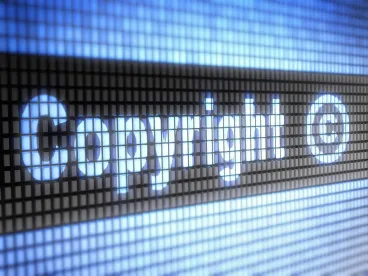Copyright laws regarding its nature and utilization were instituted to protect and promote creativity among the American public. In many ways, this is exactly what happens. When an artist, musician, choreographer, film director, visual artist, or any other — make something new, unique, and original, they are entitled to that work of art. This gives them the ability to replicate, market, monetize, and license that work as they see fit. It also protects them against “copycats”, individuals whose work is largely that of others, not their own skill and creativity.
Copyright vis-a-vis plagiarism is not exactly a difficult concept. It is the act of blatantly copying another’s material without attribution, essentially claiming it as one’s own. The more complex issue posed by copyright, however, regards the ability of artists to use or base one’s own work on similar material to that of others without necessarily copying it in toto. As Pablo Picasso supposedly said, “Good artists copy. Great artists steal.”
The law has performed the former job, that of protecting against plagiarism, rather capable in many respects. The latter (i.e, derivative works, artistic creations of a similar nature, “covers”, inspirations, and the like) come up against more complicated situations and resolutions.
Mickey Mouse and the Nature of Copyright Laws
According to New Media Rights — a non-profit providing services of a legal, educational, or policy nature to artists and other creators, as well as users of the Internet — writes critically of the current nature of copyright laws, opining that it is outdated in numerous ways. They claim that copyright laws, as it is currently written, doesn’t serve its originally intended purpose, that of aiding the public in its ability to create and protect those creations. They go to say, “Copyright laws are so overly broad that they actually stifle an individual’s creativity rather than encourage it.”
There is much truth to these claims. As Zachary Crockett writes, the Copyright Law of 1790 “stipulated that creative works were entitled to up to 28 years of protection (14 years, plus an additional ‘renewal’ period of 14 years, supposing the original hadn’t died).” This was updated to 42 years in 1831 and to 56 years in 1909. This is the period in which Walt Disney created Mickey Mouse, one of the most beloved and recognizable fictional characters of all time. He is worth billions of dollars of annual revenue every single year to the Disney Corporation. As such, they made an effort to extend copyright law to protect Mickey from the clutches of the public domain and they succeeded.
Disney was able to lobby Congress to extend copyright even further, enabling them (at present) to hold onto Mickey Mouse until 2023. This could be extended yet longer, but that remains to be seen. The more general point to draw from the episode involving Disney and Mickey Mouse is that copyright law is often instituted in such ways that protect the interests of the wealthy, of private investors, at the expense of the general public, whose interests original copyright law was intended to protect.
For this reason, many say that current copyright law is outdated, the irony, of course, being that Disney has successfully “updated” copyright regulations many times over in the last half-century. Those same critics regularly point out the credible claim that copyright laws is not only outdated but incredibly complicated to the point of being byzantine and incomprehensible to the layman. This barrier to understanding necessitates another level of difficulty: the economic challenge of mounting any substantial fight against major corporations in the battle for copyright ownership or the mutability of works of art.
Summary
In the age of the Internet, when everything is seemingly available to everyone at all times, works of art and entertainment are riffed upon endlessly. Consider GIFs, those unavoidable loops of animation or live-action in which films, cartoons, music videos, YouTube videos (its own copyright ball of wax), or anything else can be replayed infinitely in text messages, forums, social media, or anywhere else that public communities express themselves. With the difficulty of understanding the financial incentive to major corporations to control the law, it seems to many that copyright regulation is, in fact, outdated. What Congress and the courts ultimately decide may determine how such activity continues both online and in the court of public opinion.




 />i
/>i

